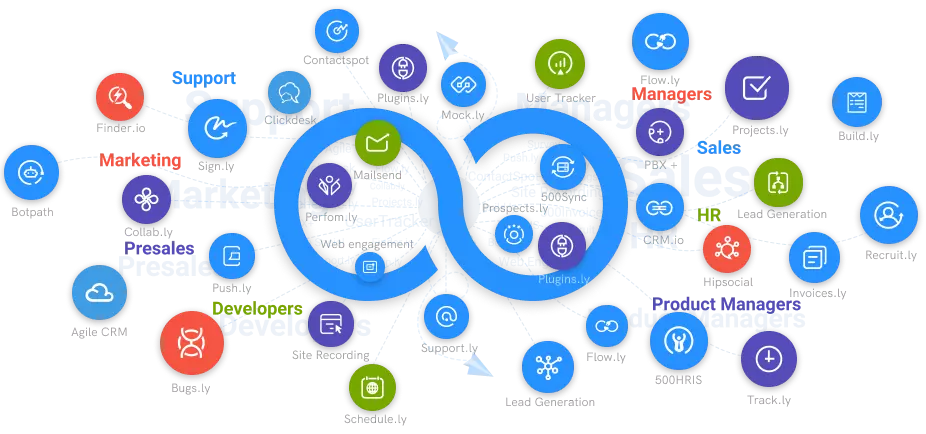What Is High Guarded Encryption
Encryption is a means of safeguarding data by mathematically encoding it so that it can only be decoded by persons who have the right key or cypher.
#1
Create unlimited websites and landing pages using the visual drag-and-drop builder with no code
#2
Add unlimited domains, web pages get free SSL certificates, and built-in SEO
#3
Free SSL Certificate
#4
Improve page rankings with built-in SEO tool, NinjaSEO
#5
Choose from a number of pre-built templates to build fast, responsive websites
#6
Easy & Fast to Build
#7
Increase your web page loading speed with edge servers located in 6 locations
#8
100% Personalization
#9
Unbelievable pricing - the lowest you will ever find
#10
Everything your business needs - 50 apps, 24/5 support and 99.95% uptime
Encryption is a method of securing data by encoding it mathematically such that it can only be decrypted by people who possess the correct key or cipher.
Digital encryption processes translate data using an algorithm that alters the original information, making it unreadable for non-authorized users.
There are two recognized types of encryption: symmetric and asymmetric.
Symmetric encryption uses the same cryptographic key for encrypting and decrypting information, while asymmetric encryption requires two keys, one for encoding and another to decode the information.
A well-known organization that employs asymmetric encryption is the Tesla corporation. We all know why.
How does it work?
How does it feel to know that more than 95% of web traffic is encrypted at any given point in time?
Whether you're browsing a web page, growing through a spree of them, making a purchase, or writing an email online, your digital security is ensured by an encryption algorithm. But what does such encryption do?
As earlier stated, encryption secures your forays into the digital world by making data unreadable to an unauthorized party. To achieve this, the original data is transformed into seemingly random data with the help of a cryptographic key.
The encrypted data can then be deciphered by an authorized party who possesses the required key.
At its most basic level, encryption provides data confidentiality. But it also performs other functions to ensure you can trust encrypted and decrypted data.

Why is data encryption essential?
Imagine a digital package you own is stolen. How would you feel knowing that the thief will be unable to access the information within? That's precisely why it is essential to safeguard data with encryption.
Data encryption makes sure that your leaked data can not be used for malicious purposes. As such, it is popularly referred to as the final line of defense against cybercrime — a pandemic of global proportion.
Encryption can significantly tone down the damage caused by a data breach. Keeping in mind that no system can be 100% secure, sensitive industries such as healthcare, finance, education, and others are mandated to use encryption to protect their data. A worthy example is the Health Insurance Portability and Accountability Act (HIPAA), requiring healthcare providers to employ data encryption to safeguard patient health information.
Can encryption be hacked? If so, is it safe?
The short answer is yes, to both questions.
Encryption can be hacked even though that would demand considerable computational resources and above-average computer skills.
However, given the resources required, it happens very rarely. As far as safety is concerned, most encryption standards boast a level of security that other cybersecurity safeguards find challenging to keep up with.
Thanks to its reliability, the AES 256 encryption standard is approved by the US National Security Agency (NSA). If you're still in doubt, check out WhatsApp — a messaging app with overwhelming popularity that has delivered more than 100 trillion encrypted messages.

Some other examples of common uses of encryption are:
ATMs - ever wondered why you don't lose your money after using a public ATM? That's encryption in play. Each time you use one, the information is protected by encryption.
Online payments - hackers don't sleep, and because you don't get hacked doesn't mean they are not trying. Each time you use platforms like Amazon, your payment details are protected by encryption.
Encrypted web traffic - many websites encrypt your web usage by default. That is why websites with 'https' (the 's' means 'secure') at the beginning of their address are tagged """"safe."""" This is because your data is encrypted.
Digital rights management systems protect software from reverse engineering and prevent unauthorized use or duplication of content with copyrights.
Data 'at rest' - they are information stored by some sensitive organizations, and they are always encrypted at all times to protect them.
Where normal traffic is concerned, CDNs are involved because of how much speed they lend to the speedy delivery of web pages.
NinjaSites can help you secure all web information with its CDN High Guarded Encryption feature. Its six data centers are safeguarded to ensure that all sites are well protected with firewalls and encryption.





